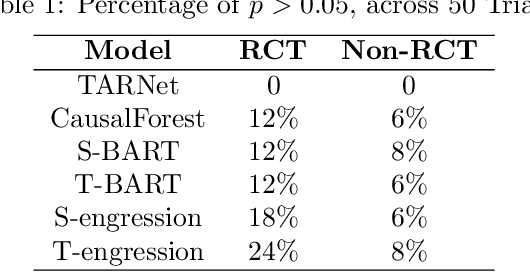Testing Generalizability in Causal Inference
Paper and Code
Nov 05, 2024



Ensuring robust model performance across diverse real-world scenarios requires addressing both transportability across domains with covariate shifts and extrapolation beyond observed data ranges. However, there is no formal procedure for statistically evaluating generalizability in machine learning algorithms, particularly in causal inference. Existing methods often rely on arbitrary metrics like AUC or MSE and focus predominantly on toy datasets, providing limited insights into real-world applicability. To address this gap, we propose a systematic and quantitative framework for evaluating model generalizability under covariate distribution shifts, specifically within causal inference settings. Our approach leverages the frugal parameterization, allowing for flexible simulations from fully and semi-synthetic benchmarks, offering comprehensive evaluations for both mean and distributional regression methods. By basing simulations on real data, our method ensures more realistic evaluations, which is often missing in current work relying on simplified datasets. Furthermore, using simulations and statistical testing, our framework is robust and avoids over-reliance on conventional metrics. Grounded in real-world data, it provides realistic insights into model performance, bridging the gap between synthetic evaluations and practical applications.
 Add to Chrome
Add to Chrome Add to Firefox
Add to Firefox Add to Edge
Add to Edge